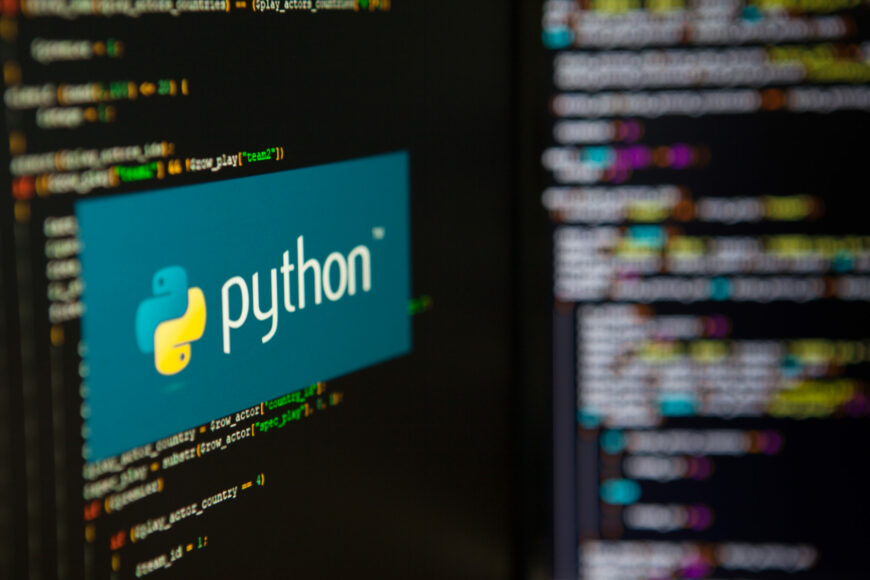So you have decided to develop Rails applications, and you think junior Ruby on Rails developers are the ones you need because of their creative mindset.
But where could you possibly get such fresh minds with creative directives? And most importantly, how are you going to assess their technical skills and abilities?
If you have a technical expert on staff, your chances of vetting candidates improve slightly. However, if you run a startup, things get a bit difficult.
You are either left with the choice of hiring a technical expert, which is costly or hiring junior Ruby on Rails developers from affordable freelance sites like Upwork.
Both decisions may turn out to be bad or good, depending on how you approach them. So why take chances? Why not dig up a little and learn how to assess junior developers?
This article fills that void by providing key information on how to assess junior Ruby on Rails developers using the right tactics, so you can choose the best candidate.
Who is a Junior Ruby On Rails Developer
A junior Ruby on Rails developer is responsible for programming the Rails applications using the open-source programming language Ruby. Most of these apps are server-side which renders elegant front-ends thanks to the expressiveness of Ruby.
These professionals take advantage of Ruby’s well-known framework, Ruby on Rails, and its rich sets of features like gems, Rails service objects, migration, and action controllers for rapidly scaling Rails applications.
Again, at some point, they may get assigned to the creation of databases and provide customer support whenever required. Ideally, for this type of operation, they are referred to as a “backend developer,” who periodically works with different front-end developers.
What Do Ruby Developers Do
A Ruby on Rails developer utilizes Ruby and its framework, Ruby on Rails, to their full potential to serve clients with sophisticated and satisfactory Rails applications.
The junior Ruby on Rails developer generally has 0–2 years of experience and is considered the “fresh mind” of the industry. He reports to the project manager regarding the product development checkpoints and provides the necessary feedback to improve the development process.
Also, he works in collaboration with the development, design, and QA teams to get a broader perspective on the ongoing Rails applications and follows the necessary protocols and standards for building any type of solution.
The junior Ruby on Rails developer is ideal for both front-end and back-end operations since the technology has everything that it needs to fulfill the goals of either side.
Find out Junior Ruby on Rails developer Salary in Different Locations in our article: Ruby on Rails Developer Salary: Best Locations for Outsourcing Developers
Ruby on Rails Developer Job Description
Since you want to hire and assess candidates, you should prepare a job description that reflects similar requirements to the points below.
- > Designing and developing Rails web applications.
- > Following SDLC to meet checkpoints and development phases on time.
- > Debugging and troubleshooting existing Rails applications.
- > Writing efficient codes for proper code structure.
- > Integrating backend business logic with front-end part.
- > Integrating databases and security protocols.
- > Developing and integrating APIs for flawless data sharing.
- > Assessing code quality and resolving bugs.
- > Implementing necessary metaprogramming techniques for speedy and efficient operations.
- > Connecting web servers with Rails applications.
Before we move ahead to the assessment part, let’s get an overview of Ruby and Ruby on Rails.
The Technology
Ruby is a dynamic, object-oriented, open-source programming language with a focus on simplicity and productivity.
It has been around since the late 90s, in fact, it was made publicly available in 1995, but it didn’t quite achieve success until much later, in 2006.
Since that year, Ruby has attracted a massive global user base, and believe it or not, the entire credit goes to its framework, Ruby on Rails, which made its first appearance in August 2004.
The framework came with such enticing features like gems because of which developers chose Ruby for different development practices.
Although Ruby and Ruby on Rails can be utilized for different types of development like web scraping, mobile app development, DevOps, data processing, and automation, they’re most famous for web development.
Popular apps such as GitHub, Bloomberg, Airbnb, and Slideshare are built on top of this technology, and currently, there are more than 410,000 active websites operating on Ruby.
A Junior Ruby On Rails Developer Skills
Being a developer doesn’t just mean building products as directed; a junior Ruby on Rails developer should know how to build software and be a valuable member of the team. He should be ready to have a deep impact on the product that he is building.
And it’s hard to find such devoted personnel with rigid determination; hence, to narrow down the points and get a clear picture of how to assess candidates, we have broken down the list into categories.
Technical Skills
Ruby on Rails entry-level jobs solely demand that the candidate be a master of this domain. Apart from the coding skills and the ability to operate Ruby on Rails frameworks, it demands diverse technical abilities, like database, testing, and knowledge of different tools
So let’s start with the must-have skills,
Programming Languages
The foremost thing you need to address is the foundational knowledge of Ruby programming language combined with other languages like JavaScript, .NET, Python, and PHP. If the candidate possesses the ability to write code in the primary as well as the secondary languages, then it’s always a plus, and you can consider that candidate to be skilled.
Related Post: Ruby on Rails Vs JavaScript: How to Understand Frameworks and Languages Better
The main things associated with the language are,
Syntax
The junior Ruby on Rails developer should know how to write some basic components of the language like loops, classes, conditional statements, modules, etc.
OOP and DSA Concepts
A junior Ruby on Rails developer works mainly with object-oriented programming. So he should be aware of the OOP concepts like classes, objects, encapsulation, inheritance, polymorphism, blocks vs procs vs lambdas, including vs extending a module, etc.
Additionally, he should be a master of DSA concepts like bubble sort, merge sort, the big O notation, etc. to drive efficiency in the code structure.
Ruby on Rails Framework
MVC Paradigm
Ruby on Rails is built on top of the MVC architecture. A candidate should know which layer is responsible for what and how to structure a particular app to get an idea of where to put business logic and where the view goes.
ActiveRecord
Every website uses some form of persistent data, which is why the junior Ruby on Rails developer should have some knowledge of ActiveRecord like models, migrations, associations, and validations.
ERB/Haml
Templating is one of the important parts of the front end; hence, the candidate should be aware of ERB/Haml for templating.
Testing with Rspec
Testing is a common approach that assesses product quality, and Rspes is well-known for performing unit testing operations. The developers have to know how to write unit tests with RSpec, as the effect of their work needs to be verified by tests to be approved/merged.
API and JSON
Ruby is often considered for APIs, so junior Ruby on Rails developers should get familiar with APIs and JSON as a format.
REST and HTTP Protocol
Many websites work as REST apps. The junior Ruby on Rails developer should be familiar with the HTTP protocol, and at least be able to identify HTTP verbs and a few of the most common status codes.
Front-End Skill Sets
Ruby has the power of expressiveness, and if it is manifested the right way, the websites may look appealing and interactive. However, to do so the developers should aware of some front-end basics like
- HTML5 – which structures every web page of a website.
- CSS – that brings design aesthetics to web pages.
- JavaScript- which is a plus point to have in case of third-party Rails integration.
Database
The database is one of the important elements of development. The candidate should be well aware of the database system, SQL basics, its logs, and other database engines like PostgreSQL and MongoDB to effectively integrate databases in the backend.
Version Control System
The junior Ruby on Rails developer must be active on popular code repositories and open-source platforms like GitHub. An actively participating candidate is always good to have on the team.
Deployment Tools
A junior Ruby on Rails developer must be aware of deployment protocols and the tools required to deploy an application such as Heroku, Docker, etc.
Related Post: Which Ruby Interpreter and Runtime Should You Use?
Non-Technical Skills
Communication
Whether it’s a remote Junior Ruby on Rails Developer or onsite he should be a fluent English speaker and be able to articulate his ideas and opinions to every team.
Problem-Solving Skills and Analytical Mindset
The ability to solve a problem is an essential skill for programming applications, and junior Ruby on Rails developers should be able to find problems and resolve bugs effectively to avoid compromising product quality.
Teamwork
There is no me in a team, and no I can do everything. This is why every team member should bear the equal responsibility of developing Rails applications. The Ruby developer must collaborate with the team and discuss every aspect of development to eliminate possible difficulties.
You can even watch our video on Non-Technical Skills required for hiring Ruby on Rails Developers.
How to Assess A Junior Ruby on Rails Developer
Understand The Parameter You Need To Evaluate
Candidate evaluation is among the toughest things, and most talent acquisition teams fail to understand what parameters they need to evaluate. So here are 5 essential skills that you should consider evaluating whenever you receive a candidate’s profile.
- The ability to solve problems
- Proficiency in language and its frameworks
- Clear code structure and debugging skills
- Communication skills
- Performance optimization
The Ways of Screening
Screening is an exhausting process, but to assess candidates’ performance, you should put effort into it. However, you can rely on smart screening tools that use AI to separate out the desirable candidates.
Now let’s take a look at the screening types and see which stands out the most.
The Traditional Way
The traditional way of screening is often put on criticism since its an outdated tactic, it follows steps like
- Academics consideration
- Resume screening
- Multiple rounds of interviews, whiteboard challenges, and a telephonic approach
- Decision-making by the manager, and if approved making an offer
The Modern Way
The traditional way of screening has a lot of issues because companies often get bad hires who leave within a year or so, putting a massive dent in their finances. It had to be improved, and many have already begun using modern screening rather than defective traditional screening.
The modern screen follows the following steps,
- No academic consideration, rather look for passion.
- Go beyond resumes, look for open-source activities and contributions, and check out portfolios.
- Assess technical skills using modernized coding platforms like Leetcode, Codeforces, GitHub, StackOverflow, etc.
- Interviews that focus on cultural fit, ask opinion-based questions to assess what the candidate does in each circumstance rather than asking only concept-based questions.
- Team-based decision-making and making an offer.
How to Assess the coding Skills
There are three methods that you can use to assess the coding skills of a junior Ruby on Rails developer.
Portfolio
The best candidates always have an appealing portfolio of work. A decent portfolio has open-source, StackOverflow, and GitHub contributions along with clickable links and personal projects, competitive coding ranks, etc.
You can head over to his contributions, personal projects, and other Q&A activities to assess his abilities and passion for programming software.
Even so, on some platforms, you can check how often the junior Ruby on Rails developer is active and how much time he contributes to open-source projects.
Arranging A Coding Assessment
The resumes and portfolios are indeed necessary, but it’s important to test candidates via an online/offline coding assessment. You can configure the test as per your requirements and even modify its attributes.
And if you don’t have knowledge of conducting any coding assessments, you can take the help of online assessment platforms that offer customized coding tests, so you can assess the candidate without any hassles.
Technical Interview
The technical interview includes the in-person/ online live coding assessments, where you can choose the questions from popular competitive coding platforms like Leetcode and Codeforces and assess the abilities of a candidate using coding-based Ruby on Rails interview questions.
These live coding assessments also test real-world coding, collaboration, and communication skills.
For this, however, you will require a technical expert, and if you don’t have a technical expert, you can check out this article on Ruby on Rails interview questions and answers to assess your junior Ruby on Rails developers.
Don’t Want These hassles?/ Running Low On Time, Here is The Solution.
Of course, the above process is exhausting and may take time to implement. But we do have a better solution to this. Instead of taking everything on yourself, join hands with Optymize- a talent marketplace, for all your development needs.
Optymize offers planetary top 3% of talents at a reasonable price within 48 hours of the call. So no matter what country your company resides in, we connect you with Ruby elites who work in your timezone with the least cultural difference.
Above all, we have tested these top talents with a rigorous vetting process designed by our talent cloud solution, so you don’t have to spend time assessing their abilities, you can just onboard them and begin your two-week free trial.
So choose the skills you need and start scaling your powerhouse.
Conclusion
There you have it, the tactics you can use to assess junior Ruby on Rails developers.
Due to the uniqueness of Rails applications, there is a spike in junior Ruby on Rails developer jobs, and companies similar to yours are expanding their views on recruiting candidates at reasonable prices.
And one method is to hire remote developers from a talent marketplace who will take care of everything so you can have your product ready ahead of the deadline.







